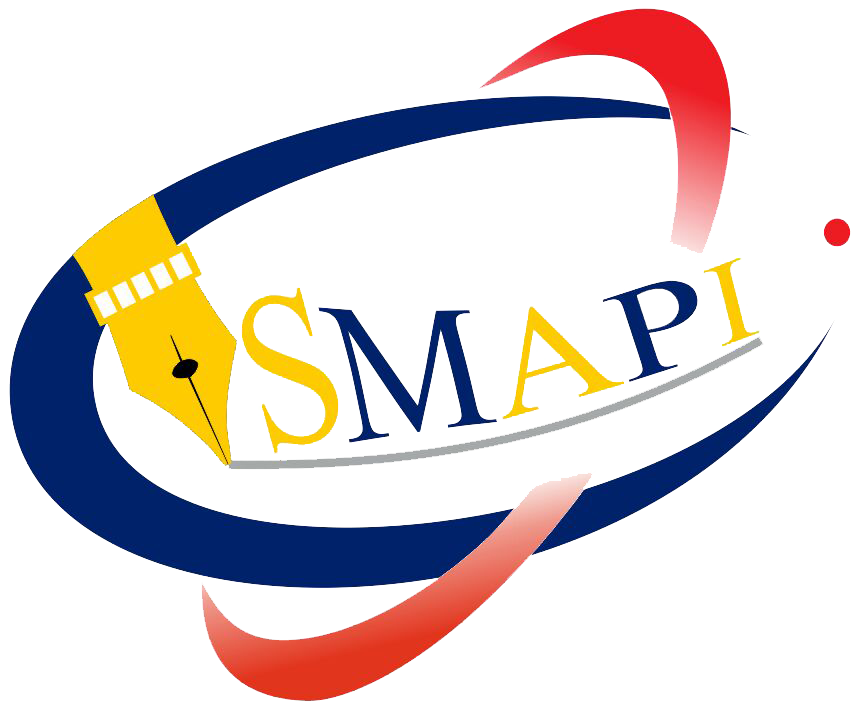EVALUATION OF THE IMPLEMENTATION OF JAKARTA SMART CARD PROGRAM IN A PRIVATE SCHOOL IN WEST JAKARTA
DOI:
https://doi.org/10.22236/jkpuhamka.v1i1.3423Keywords:
program evaluation, discrepancy evaluation model, cash assistance, Jakarta Smart CardAbstract
In 2012, the Provincial Government of Special Capital Region of Jakarta (DKI) launched the Education Personal Cost Assistance (BBPP) through Jakarta Smart Card (KJP). This program is intended as an effort to help students from less fortunate families to fulfill their 12-year compulsory education. In its implementation, this program faced problems. This research, which was done at SMP Al-Abror, a private junior secondary school in Kembangan Sub-district, West Jakarta in February through November 2017, has the purpose to evaluate the implementation of the KJP program. The evaluation focused on data collection, distribution, usage, and reporting, by implementing the Discrepancy Evaluation Model (DEM). The data were collected through document analysis, observation, interview, and survey which were then analyzed qualitatively and quantitatively based on the type of data. The results of the evaluation show that the data collection process at SMP Al-Abror has been done according to the established procedures and standards and is categorized as good. The distribution of students' account books and ATM KJP is also categorized as good. The usage and reporting of KJP funds is categorized as very good. However, in its implementation, there are still problems during the data collection stage, especially in the visitation stage due to the lack of time of the home room teachers have. Other than that, there are still infractions that occur including cash withdrawals for unauthorized uses and also students who did not report the uses of the KJP fund.
Downloads
References
Arikunto, S. & Jabar, C. S. A. (2014). Evaluasi program pendidikan: Pedoman teoretis praktis bagi mahasiswa dan praktisi pendidikan (edisi kedua). Jakarta: Bumi Aksara.
Asep. (2014). Jokowi segera tindaklanjuti temuan ICW terkait KJP. Diakses 27 April 2014 dari http://www. wartaekonomi. com/Jokowi-Segera-Tindaklanjuti-Temuan-ICW-Terkait-KJP.
Ayuningtyas, R. (2015, 10 Agustus). Ahok evaluasi program KJP hari ini. Diakses dari http://news. liputan6. com/read/2289942/ahok-evaluasi-program-kjp-hari-ini
Badan Pusat Statistik. (2015a). Angka Partisipasi Kasar (APK) menurut Provinsi, 2003-2010 [Data Sensus]. Downloaded 1 April 2018 from https://www.bps.go.id/ dynamictable/2015/12/22/1049/angka-partisipasi-kasar-apk-menurut-provinsi-2003-2010. html
Badan Pusat Statistik. (2015b). Angka Partisipasi Murni (APM) menurut Provinsi, 2003-2010 [Census Data]. Downloaded 1 April 2018 from https://www.bps.go.id/ dynamictable/2015/12/22/1051/angka-partisipasi-murni-apm-menurut-provinsi-2003-2010.html.
Badan Pusat Statistik. (2016). Angka Partisipasi Sekolah (APS) menurut Provinsi, 2003-2010 [Census Data]. Downloaded 1 April 2018 from https://www. bps. go. id/dynamictable/ 2015/12/22/1053/angka-partisipasi-sekolah-aps-menurut-provinsi-2003-2010. html
Badan Pusat Statistika. (2017a). Indikator pendidikan 1994-2017 [Census Data]. Downloaded 5 April 2018 from https://www. bps. go. id/statictable/2010/03/19/1525/indikator-pendidikan-1994-2017. html
Badan Pusat Statistika. (2017b). Potret pendidikan Indonesia: Statistik pendidikan 2017. Downloaded 14 Februari 2018 from https://www. bps. go. id/publication/2017/12/29/a5f1de9e06a62e333bc7a33c/potret-pendidikan-indonesia-statistik-pendidikan-2017. html.
Badan Pusat Statistik. (2017c). Angka Partisipasi Kasar (APK) menurut Provinsi, 2011-2017 [Census Data]. Downloaded 1 April 2018 from https://www.bps.go. id/dynamictable/2015/ 12/22/1050/angka-partisipasi-kasar-apk-menurut-provinsi-2011-2017. html
Badan Pusat Statistik. (2017d). Angka Partisipasi Murni (APM) menurut Provinsi, 2011-2017 [Census Data]. Downloaded 1 April2018 from https://www.bps.go. id/dynamictable/2015/12/22/1052/angka-partisipasi-murni-apm-menurut-provinsi-2011-2017. html
Badan Pusat Statistik. (2017e). Angka Partisipasi Sekolah (APS) menurut Provinsi, 2011-2017 [Census Data]. Downloaded 1 April 2018 from https://www.bps.go. id/dynamictable/2015/ 12/22/1054/angka-partisipasi-sekolah-aps-menurut-provinsi-2011-2017. html.
Ghani, A. A. (2009). Mengurai Simpul Pendidikan. Jakarta: UHAMKA Press.
Miles, M. B., & Huberman, A. M. (1994). Qualitative data analysis (2nd ed. ). Thousand Oaks, CA: SAGE Publications, Inc.
OECD/Asian Development Bank (2015), Education in Indonesia: Rising to the Challenge, OECD Publishing, Paris. Downloaded 21 November 2016 from http://dx.doi.org/10.1787/9789264230750-en.
DKI Provincial Governor Regulation Number 27 of 2013 concerning Personal Education Fee Assistance for students from disadvantaged families through KJP.
DKI Provincial Governor Regulation Number 174 Year 2015 Assistance for Personal Education Costs for students from poor families through the Jakarta Smart Card.
DKI Provincial Governor Regulation Number 141 Year 2016 Amendment to Governor Regulation Number 174 Year 2015 concerning Personal Education Fee Assistance for students from poor families through the Jakarta Smart Card.
Pertiwi, Y. M. & Yuningsih, T. (2016). Pentingnya faktor komunikasi dalam program Kartu Jakarta Pintar (KJP) pada sekolah dasar (SD) negeri di Kota Administrasi Jakarta Timur. Gema Publika Jurnal Manajemen Kebijakan Publik, 2(1), 28-33.
Setyadharma, A. (2017). Upper Secondary School Dropout: Lessons Rom Central Java Province, Indonesia (Dissertation). Downloaded 4 April 2018 from https://mro. massey. ac. nz/handle/10179/11854
Steinmetz, A. (2002). The discrepancy evaluation model. In D. L. Stufflebeam, G. F. Madaus, & T. Kellaghan (Eds. ), Evaluation Models: View Points On Educational And Human Services Evaluation (2nd ed. ). (pp. 127-143). New York, NY: Kluwer Academic Publishers.
UNESCO (2017). Situation Analysis Of Out-Of-School Children In Nine Southeast Asian Countries, diunduh 14 Februari 2018 dari http://unesdoc.unesco.org/images/002)5/002527/252749e. pdf
Worthen, B. R. & Sanders, J. R. (1987). Educational Evaluation: Alternative Approaches And Practical Guidelines. New York and London: Longman Inc.















